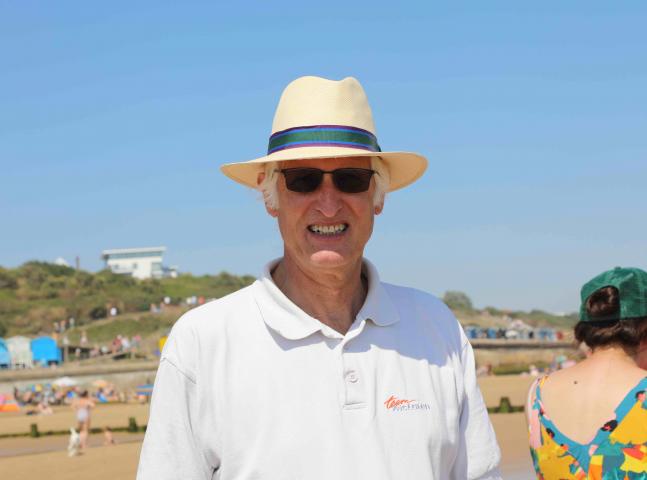Nigel Wheatley says the future is bright as he now looks forward to introducing his young grandson to the joys of his beloved motorsport.
Talking to us on World Blood Cancer Day, he’s now able to enjoy this renewed zest for life after seeing a positive uplift in his health following admission on to the FLAIR clinical trial to combat his chronic lymphocytic leukaemia (CLL).
The 67-year-old, after initially having no ill-effects following his diagnosis six years ago, in 2015, had begun seeing a decline after shingles, chest infections – and even double pneumonia at one point.
That’s when he moved his treatment to the Trials Acceleration Programme (TAP) centre at University College London Hospitals NHS Foundation Trust (UCLH) – and he’s not looked back since.
Saying all that, blood cancer wasn’t something he could ever have envisaged as he calmly awaited the results of a blood test ahead of a minor operation.
When he was told the news, it was a bolt out of the blue.
He said: “I was rather shocked – I felt very well and thought the hospital must have confused me with someone else!
“But, initially, apart from routine appointments and blood tests at the Whittington Hospital, CLL had no real impact on my life or outlook.
“I am very fortunate to have a job I enjoy very much. I work with my wife and son running our family-owned pet shop in the area I grew up in. Having done the job nearly 50 years, we’ve built up a lot of friends among our customers. It is quite a physical job and we’re open 5 days a week but it’s very rewarding.
“However, in 2017, my health suffered. It was then my consultant, Dr Ali Rismani, said I needed treatment.”His options were simple – regular chemotherapy or a clinical trial.
He picked the six-year FLAIR Trial, based at UCLH, for two reasons – he doesn’t like needles and, also, most importantly he felt it would enable him to keep working in the job he adores.
He continued: “I felt reluctant to leave the Whittington Hospital due to the care and support shown to me by the team there. What helped my decision to apply for the clinical trial was the fact that there was a chance my working life wouldn’t be affected – and also, being needle phobic, my treatment might be tablets only!
“It wasn’t a forgone conclusion I would be accepted onto the FLAIR Trial though, so I was delighted to get the okay, especially as I’d had flu and another chest infection while waiting for the decision.”
If he enjoyed strong relationships at the Whittington Hospital, it was a trend that continued at UCLH – where he was bowled over by the care and consideration he received from the whole team, led by Dr Kate Cwynarski.
He added: “When I arrived at UCLH, I was impressed by the blood cancer team there. They conveyed to me their calm manner and compassion. It helped relax me.
“With the regular appointments, I formed a friendship with the nurses Laura, Sharon and Maia – and Doctor Kate in charge of my care.
“I felt the whole team helping and supporting me and I trusted them and felt safe.
“I began the trial after being randomly selected to have Ibrutinib and Venetoclax. I found I was able to cope with the treatment with a few minor side effects.
“I continue to have good health with the care and support of the doctors and nurses at UCLH. I even find I can now cope better with needles due to the excellent phlebotomists!
“I am often told by our customers that I’m looking really well and I certainly feel it. I feel the future is bright, especially when we watch our young grandson growing up. I look forward to introducing him to the joys of motorsport!”





